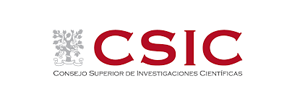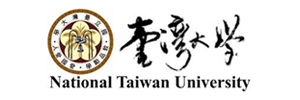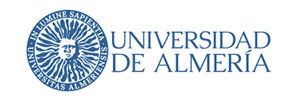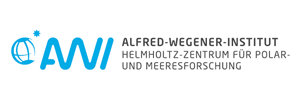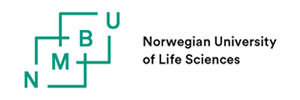Description of the Entity
The Spanish National Research Council (CSIC) is Spain’s largest public research institution and ranks third among Europe’s largest research organizations. As part of the Spanish Ministry of Science and Innovation through the State Secretariat for Research, Development, and Innovation, CSIC plays a key role in scientific and technological policy in Spain and worldwide.
CSIC has four main missions:
- to foster multidisciplinary scientific and technological research,
- Knowledge transfer to industry and society,
- Education and training of scientific and technical staff,
- Creation of Technology-Based Companies.
As the third-largest research organization in Europe, CSIC’s 70 fully-owned institutes and 53 Joint Research Units in partnership with other research institutions and universities across the country covers different areas of Science and Technology, from the most basic or fundamental aspects of science to the most complex technological developments; from human and social sciences to food science and technology, including biology, biomedicine, physics, chemistry and materials, natural resources and agricultural sciences. The institution also has a delegation in Brussels, Belgium.
A major player in European research development, CSIC has broad experience conducting R&D projects funded by national and international public agencies. CSIC has signed 726 actions (including 70 coordinated by CSIC) within the 7th Framework Programme. A total of 512 projects with a total EU financial contribution of €217 million was obtained through the H2020 programme. According to E-CORDA, CSIC is listed as number one in Spain and 4th throughout Europe in terms of the number of projects within the research organisations, with a total FP7 contribution of over €264 million.
Two leading research and technology centers from CSIC will participate in Prodigio project:
- The Institute of Marine Sciences in Barcelona, with ca. 250 researchers, is the largest marine research centre in Spain and one of the most important in the Mediterranean region. The ICM develops innovative research at the interface between environmental sciences and technology and is committed to the advance and application of basic research to address environmental issues society is currently facing with a special focus on the ocean. The ICM has been recently recognized as a “Severo Ochoa” Centre of Excellence.
- The Centre of National Biotechnology in Madrid. It was inaugurated in 1992 with the mission of leading the development of modern Biotechnology in Spain. Its main objectives are:
- i) to acquire knowledge and develop new technologies in the areas of human and animal health, agriculture, microbiology, and the environment, ii) to transfer scientific advances for the benefit of our society, to train future generations of researchers and technologists and
- iii) to inform and involve society of the advances and benefits of Biotechnology. The CNB stands out for its versatile and interdisciplinary research, combining molecular biology techniques with the latest technologies in the field of functional and structural biology. The CNB has been recognized by an international jury as one of the twelve “Severo Ochoa” Centres of Excellence in the area of Life Sciences and Medicine.
Role in the Prodigio Project
CSIC’s broad experience in project management and its extensive experience in microbiology guarantees the success of the project and reach its primary goals. A dedicated and highly skilled research team from both centres will be dedicated to the study of microbial ecology (eco-genomics) in wastewater – and seawater – based microalgae biomass production systems.
The Team
Pedro Cermeño is a Senior Researcher at the ICM-CSIC in Barcelona, Spain. He has strong interests in microalgae ecology and physiology, microbial evolution, and global biogeochemical cycles. He was granted a postdoctoral fellowship from the Fulbright Program in 2006-2007 through the Bureau of Educational and Cultural Affairs and from the Marie Curie Outgoing International Fellowship Program in 2007-2009 through the European Union. He has done a postdoctoral stay at Rutgers University and the Massachusetts Institute of Technology in the USA. He has published over 50 scientific papers (SCI) in Science, PNAS, ISME, Nature Communications, in Ecology Letters. He has participated and been invited as a speaker in >50 national and international conferences, meetings, and workshops.
Carles Pedrós-Alió is a Research Professor at CNB-CSIC in Madrid, Spain. He has a strong interest in microbial diversity, ecology of aquatic microorganisms, adaptations to extreme environments, and nutrient acquisition strategies by bacteria. He received his Ph. D. from the University of Wisconsin-Madison and the Autonomous University of Barcelona. He served as a scientist at ICM for 25 years and at CNB for the last seven years. He was a Fulbright-Hays scholar between 1977-81. He has also been elected to the American Academy of Microbiology. He is currently a member of the following committees: SCAR-Spain, European Polar Board, Advisory Committee of the International Census of Marine Microbes. He has published over 200 scientific papers in Nature, Science, PNAS, Annual Review in Marine Sciences, Trends in Ecology and Evolution, Trends in Microbiology, and Microbiology and Molecular Biology Reviews.
Judith Traver Azuara is graduated in Marine Science/Oceanography from the Catholic University of Valencia (UCV) in 2017. She holds a Master degree in Environmental Assessment and Monitoring of marine and coastal ecosystems in the Polytechnic University of Valencia, 2018. Her previous experience goes from environmental scientist studying macroalgae and marine mammals to environmental educator. Since her first contact with genomics, she decided to pursue a PhD on the field. She is conducting her PhD thesis at the ICM, where she focuses on the population genomics and microbial interactions in natural marine systems and algal raceways. She will contribute to WP3 with DNA and RNA extractions and the genomic data analyses.
Judith Traver Azuara
Ramiro Logares is a Senior Researcher at the ICM-CSIC in Barcelona, Spain. He is a computational ecologist & evolutionary biologist investigating the microbial world. He received his PhD at Lund University, Sweden in 2007 and a postdoc at Uppsala University, Sweden in 2008-2010. He has been at ICM-CSIC since 2010 but he was a Marie Curie Fellow in 2010-2012, a Juan de la Cierva fellow in 2012-2015, and since mid-2015, he has been an independent PI within the Ramon y Cajal tenure-track Spanish programme. Back in April 2019, he obtained a permanent position at the ICM-CSIC as a researcher and now leads a team of 5 researchers.
He has authored 84 scientific articles and book chapters in high-rank journals including Science, Current Biology, PNAS, Molecular Biology and Evolution, and Trend in Microbiology. He has been PI of 7 national and international projects. He has been a Special Visiting Researcher fellow in Brazil as part of Ciencia sin Fronteras programme for international leaders. In addition, he has been a visiting PI at the University of Oslo, Norway, as part of the awarded Research Council of Norway’s prestigious “Young Research Talents” programme. He has been invited as a speaker in 8 conferences while 3 as a keynote speaker. His role in Prodigio is related to the generation and analysis of multiomics datasets (metagenomics, metatranscriptomics, and metabarcoding) leading WP3.
Carmen García-Comas holds a Ph.D (2010) funded by the Eur-oceans (European Network of Excellence for Ocean Ecosystems Analysis) and carried out between the LOV (France) and the SZN (Italy). She has worked as a postdoc at NTU (Taiwan) between 2010-2013 and at JAMSTEC (Japan) between 2013-2018. Since 2018 she is based in Barcelona where she has been working as a teaching assistant at the UVIC and as a researcher assistant at the ICM. She has published 12 scientific papers in top journals of oceanography and ecology, including Proceedings B and Nature. H index is 9 and her work has been cited 750 times. She has participated in 30 international conferences and given four invited seminars.
Her main expertise is in ecoinformatics and theoretical ecology. She has mainly worked on marine plankton community structuring and functioning, with a special focus on the role of functional traits and among them, on body size. In a broad context, she is interested in understanding how diversity is maintained and how it affects functioning.
Carmen participates in WP7 as the project manager of PRODIGIO and she will also be involved in WP3 and WP4.
Javier Tamames is a Senior Scientist at CNB-CSIC, Madrid, Spain. He is a biochemist with the main focus on bioinformatics and computational biology. He received his Ph. D. from Universidad Autónoma de Madrid in 2000. At CNB-CSIC , he leads, since 2010, the Microbiome Analysis Laboratory, which analyses the ecological functioning of microbiomes from different environments (host-associated metagenomes, freshwaters, ocean, arctic, extreme environments), with a very strong component in the development of bioinformatic methods & tools.
Celia Marrase is a Senior Researcher at the ICM-CSIC in Barcelona, Spain. She is a plankton ecologist with a focus on physical-chemical-biological interactions. She received her PhD in 1986 at the University of Barcelona, done a postdoctoral stay at the Woods Hole Oceanographic Institution (USA), and consolidated at the ICM in 1990. She has a strong interest in questions related to the remineralization of organic matter, particularly, in the environmental constraints for the complete organic matter degradation in marine systems. From 2009 to 2014, she headed the Department of Marine Biology and Oceanography at the Institut de Ciències del Mar (ICM-CSIC, Barcelona) and the Scientific Responsible for the Infrastructure service: “Area of Aquariums and Experimental Chambers (ZAE)” of the ICM-CSIC from 2007 to 2009.
She was a member of the International Scientific Steering Committee of the Global Ocean Ecosystem Dynamics (GLOBEC) from 1999 to 2004 and the SCOR/IGBP Planning Committee on the Future of Ocean Biogeochemistry from 2000 to 2001. She has authored over 90 papers and participated in 20 oceanographic cruises, three times as a Chief Scientist. She is currently the Deputy Director of ICM-CSIC.
Caterina R. Giner is a marine microbial ecologist, interested in understanding the processes that drive the assembly and dynamics of microbial communities with a special focus on protists. She received her Ph.D in Marine Sciences in 2017 from the Polytechnic University of Catalonia. She has been a visiting scientist at MIT in 2013 and at the University of Technology Sydney in 2015, and she has worked as a postdoc at the University of British Columbia (Canada) between 2018-2021.
In Prodigio she will be working as a lab technician, characterizing the microbial communities by analyzing genomic, flow cytometry, and organic matter samples.
Rafel Simó is a Research Professor at ICM-CSIC. He is a marine biogeochemist with a strong interest in ocean biosphereatmosphere-climate interactions, with a long-standing emphasis on the sulphur cycle, and more recently on biogenic volatile compounds and aerosols. He completed his PhD in 1995 at the University of Barcelona, a postdoc at the University of East Anglia (UK), and consolidated at the ICM in 2000, where he coordinates the Research Group of Marine Biogeochemistry, Atmosphere, and Climate.
From 2009 to 2014, he served in the Scientific Steering Committee of SOLAS (Surface Ocean Lower Atmosphere Study), a daughter project of Future Earth, WCRP, IGAC, and SCOR. He has also published over 115 papers in SCI journals, including Science, Nature, PNAS, and Trends in Ecology and Evolution. In 2010-2011, he was a member of the coordination team of the Malaspina Circumnavigation Expedition and the project leader in the Antarctic Circumnavigation Expedition in 2017. He currently holds the ERC Advanced Grant on marine microbial interactions.
Ramón Massana is a Senior Researcher at the ICM-CSIC in Barcelona, Spain. He is a marine microbial ecologist with a focus on protist ecology and evolution. He completed his P.h.D in 1993 at the Autonomous University of Barcelona, done a postdoctoral stay at the University of California, Santa Barbara (US), and consolidated at the ICM in 2005. He is a coordinator of the group “Ecology and Genomics of Marine Microorganisms,” responsible for monitoring the Blanes Bay Microbial Observatory, NW Mediterranean Coast, which has been operating since 2001 and participates in many oceanographic cruises globally.
Over the last 30 years, his wealth of experience and expertise has resulted in about 150 scientific papers, often invited to international meetings and lead international and Spanish research projects. Since January 2016, he has been the Coordinator of the EU Innovative Training Network SINGEK, which was conceived to promote the use of Single Cell Genomics to address critical ecological and evolutionary questions in microbial eukaryotes.
Maria Montserrat Sala has a passion for microbial ecology and the need to discern the role of microorganisms in aquatic systems led her to a short stay in The Netherlands followed by a 4-year pre-doctoral stay at the Institut für Seenforschung in Germany. After her Ph.D, she moved as a post-doc to the Institut de Ciències del Mar (ICM), with several short stays to broaden her formation at the Max-Planck Limnological Institute in Plön, Germany. In 2007, she obtained a position as a senior scientist at the ICM (CSIC).
Since her Ph.D, she has uniquely combined the measurement of extracellular enzyme activities and the assessment of the use of sole-carbon-sources and bacterial diversity in experiments and the field to gain a comprehensive understanding of organic matter utilization in marine environments (e-Book: Sala MM, Piontek J, Endres S, Romaní AM, Dyhrman S, Steen AD, eds. (2019) Extracellular Enzymes in Aquatic Environments: Exploring the Link between Genomic Potential and Biogeochemical Consequences). Also, in the last years, she has focused part of her recent research on the exploration of the diversity of the microorganisms associated with particles, a hot topic in which she has published several papers in highly rated journals.
During all these years, she has published over 90 publications and led 8 projects, for which she addressed the most appropriate approach and scale of study to answer specific research questions. This has taken her from polar ecosystems to lakes and from global oceanic scales to microlayers, addressing aspects related to global change (acidification, Arctic ice melting, pollutants, airborne microbes, microplastics) to bacterial physiology.
Apart from the standard scientific roles, she considers that it’s important to spread science to society, so she has contributed to the formation of many students, and she often carries out outreach activities. Also, since 2018, management, editing, and participation in evaluation committees are important parts of her scientific tasks. Among others, she has been elected member of the Expert Panel of Research in Flanders (Belgium), of the Steering Committee of the Catalan Society of Biology, and associate editor of the journals Frontiers in Microbiology, Scientia Marina, and Oceans.
Her role in PRODIGIO is to quantify microbial communities in experimental approaches, which is a natural continuation of her research line on microbial activity that started already during her Ph.D and developed in different institutions. Her experience in plankton ecology and bacterial metabolism in the ocean will surely contribute to the success of the project. PRODIGIO is a new challenge that she will face with a solid scientific background and with great enthusiasm.

